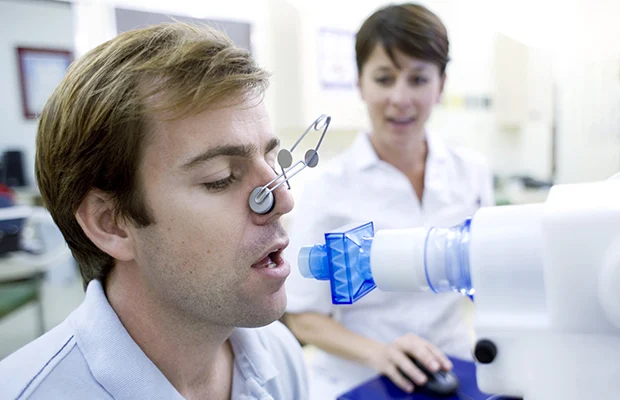Home / Lung Function Test
A lung function test, also known as pulmonary function test (PFT), is a group of non-invasive tests used to evaluate how well the lungs are functioning. These tests measure various aspects of lung capacity, airflow, and gas exchange to help diagnose respiratory conditions, monitor disease progression, and assess treatment effectiveness.
Peak Expiratory Flow (PEF) Measurement: PEF measurement assesses the maximum speed at which air can be forcefully exhaled from the lungs. It is often used to monitor asthma and assess the severity of airflow obstruction.
Lung Volume Measurements: Lung volume measurements assess the total amount of air contained in the lungs and different lung compartments. Tests such as plethysmography and gas dilution techniques are used to measure lung volumes and capacities and can help diagnose conditions such as restrictive lung diseases and hyperinflation.
Diffusion Capacity Testing: Diffusion capacity testing measures the ability of the lungs to transfer gases (such as oxygen and carbon dioxide) between the air sacs (alveoli) and the bloodstream. This test helps evaluate gas exchange in the lungs and can detect abnormalities in conditions such as interstitial lung diseases and emphysema.
Bronchial Provocation Tests: Bronchial provocation tests assess airway responsiveness by exposing the airways to specific stimuli (such as methacholine or exercise) and measuring the resulting changes in lung function. These tests are used to diagnose asthma and assess airway hyperreactivity.

Lung function tests are safe, painless, and performed by trained healthcare professionals. The results of these tests provide valuable information to guide diagnosis, treatment decisions, and disease management for individuals with respiratory conditions.
 Call Now Button
Call Now Button